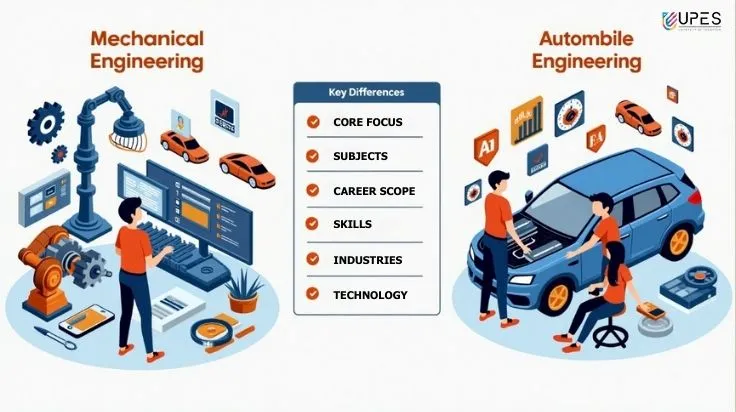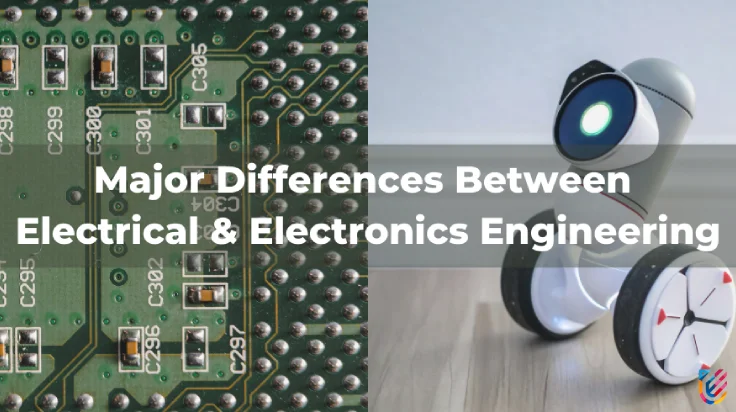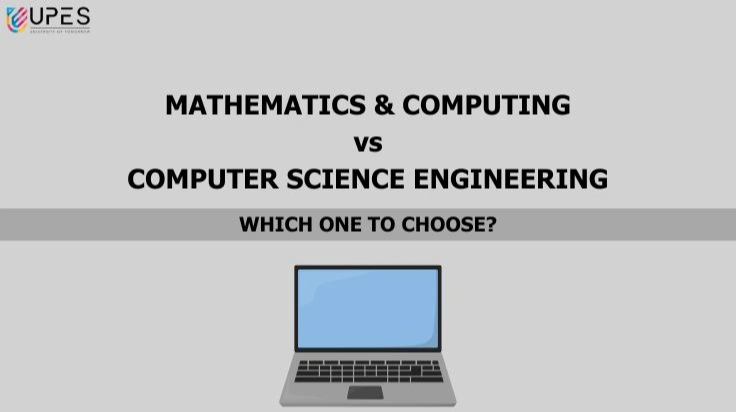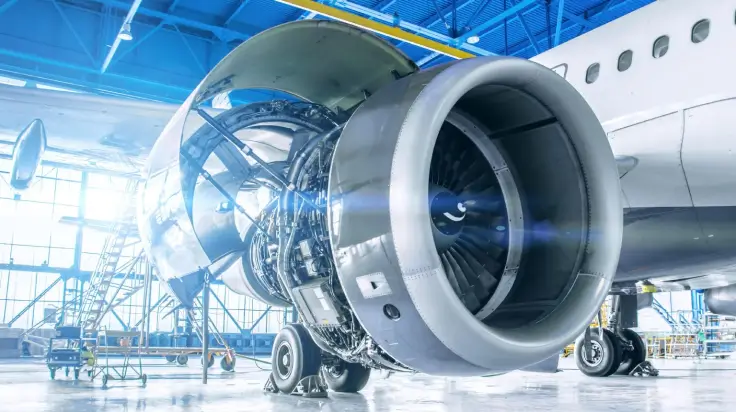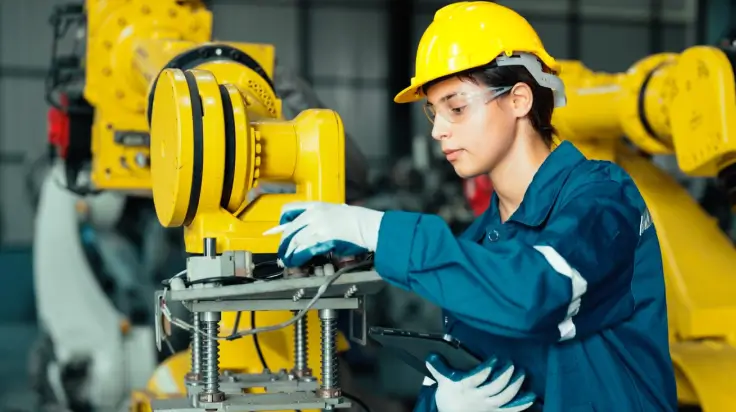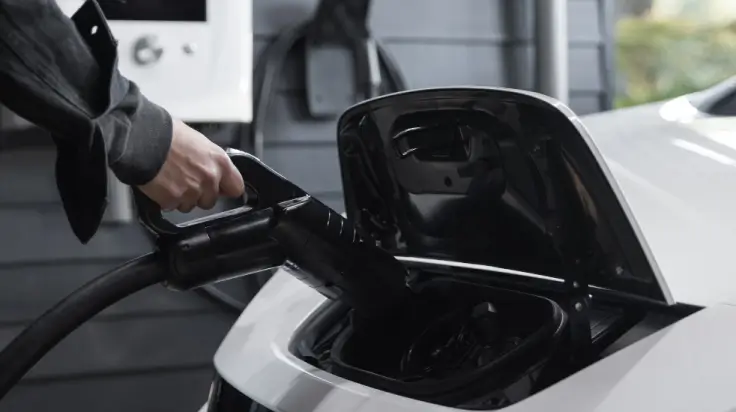Automotive Engineering: The Future of Hydrogen-Powered Vehicles
- UPES Editorial Team
- Published 18/12/2024
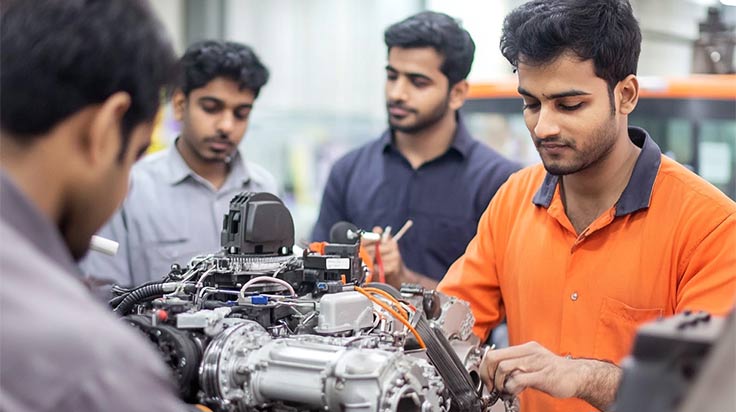
Table of Contents:
Hydrogen powdered vehicles will be the next big thing after EVs! New subsidies, environmental concerns, and growth of sustainable energy have together made Hydrogen-powered vehicles a very popular choice among the masses. You can say goodbye to cumbersome charging process of EVs with Hydrogen-powered vehicles due to their reliability and quick refuelling. Isn’t that something worth looking forward to? We are witnessing constant improvement in hydrogen technology and infrastructure to foster better availability of sustainable, zero-fuel emissions across all sectors. Let us explore what lies in the future of hydrogen-powered vehicles, and what can we expect in near future. Keep reading!
Comparison with Electric and Traditional Combustion Engines
Before we jump into the future of Hydrogen fuel cell vehicles (HFCVs), let us embark on a comparative study of EVs, Traditional Combustion Engines and HFCVs:
1. Environmental Concerns:
- EVs: EVs have been significant in reducing carbon prints as they run on battery power and produce zero emissions, however, they consume a lot of electricity, which often is derived from coal.
- Traditional Combustion Engines: They are heavily dependent on gasoline and diesel for running, making them now non-friendly to the environment due to large Carbon dioxide emissions from the fossil fuels.
- HFCVs: HPVs, particularly those using fuel cells, emit only water vapor and heat as byproducts. This makes them as environmentally friendly as EVs when hydrogen is produced using renewable energy sources.
2. Energy Efficiency
- EVs: Electricity stored in a battery is directly used by the motor thereby reducing energy conversion rates, making EVs more energy efficient than HFCVs.
- Traditional Combustion Engines: Of the three, Traditional Combustion Engines are least energy efficient as a lot of energy is lost during fuel combustion.
- HFCVs: HFCVs do experience energy loss during hydrogen production, storage, and conversion within the fuel cell.
3. Refuelling Time
- EVs: EVs take a lot of time in charging, making this an important factor to consider especially when travelling long distances.
- Traditional Combustion Engines: Refuelling them is much easier and this has been major advantage of them over EVs.
- HFCVs: Their refuelling time is much less than EVs, making them a better choice than EV in this regard.
4. Range and Performance
- EVs: EVs can run up to 300-400 miles. However, one needs to make sure there is a charging station in their route for smooth and steady journey
- Traditional Combustion Engines: Due to easy refuelling options, Traditional Combustion Engines have been an easier option for long travels.
- HFCVs: Be prepared to get around 400-600 miles with HFCVs, making them a better, cleaner option.
5. Cost Considerations
- EVs: Although the price of EVs have come down, battery replacement still remains an expensive affair.
- Traditional Combustion Engines: With every range of car available, Traditional Combustion Engines are a popular choice when it comes to cost considerations.
- HFCVs: HFCVs are an expensive choice due to high costs in infrastructure, hydrogen production, and more. However, with tech innovations, there is an expectation of their prices going down.
Depending on the comparison, we can safely say HFCVs have solid advantages over both EVs and HFCVs, and with the right technological advancements and hydrogen production, we can expect good growth of HFCVs across all industries.
Become future-ready with our Advanced Engineering programs
Know MoreFuture of Hydrogen-Powered Vehicles in the Automotive Industry:
By 2035, the automobile industry's use of hydrogen is anticipated to reach a value of 353 thousand units, with a compound annual growth rate (CAGR) of 28.3%.
Benefits of Hydrogen-Powered Vehicles:
“I believe that water will one day be employed as a fuel, that hydrogen and oxygen which constitute it, used singly or together, will furnish an inexhaustible source of heat and light, of an intensity of which coal is not capable.”- Jules Verne
Having the potential to revolutionise the automotive industry, Hydrogen-powered vehicles are potential alternatives to gasoline and diesel vehicles. Are you rethinking your vehicle choice? Have a look at the benefits of Hydrogen-powered vehicles for more details:
Zero Emissions | With no carbon dioxide, carbon monoxide, and oxides of nitrogen emissions, Hydrogen fuel cell vehicles (HFCVs) produce no tailpipe emissions. |
Extended Driving Range | Easy on the road with 400-600 miles potential. |
Quick Refuelling | Say no to unnecessary time consumption with fast refuelling in HFCVs. |
Energy Diversity | Water and Electricity are used to create hydrogen, making it a clean, renewable source of energy. |
Less Pollution | Since the only by-product is water, HFCVs hardly cause pollution. |
Energy Efficiency | HFCVs can be 30% more efficient than other vehicles. |
Reduced Oil Imports | As alternatives to gasoline and diesel, HFCVs help bring down money spent on oil imports. |
Infrastructure | Hydrogen production can use existing natural gas and electricity infrastructure. |
Hydrogen-powered vehicles present an exciting alternative in the quest for sustainable transportation, combining the benefits of zero emissions with the convenience of rapid refuelling and long range. The benefits of HFCVs will grow with better funding, government investments, innovation, and reduced infrastructure costs.
Challenges of HFCVs:
However, there are still some challenges to overcome, such as infrastructure and manufacturing costs. The automotive hydrogen fuel cell must also meet rigorous requirements, such as being able to start quickly in freezing conditions and being cost-effective.
- Rising Demand for BEVs and HEVs: There are many models and types of cars for BEVs and HEVs. Big Automotive industries like TESLA, BYD, and Volkswagen are focussing on production of BEVs and HEVs. So many options aren’t available for HFCVs, unfortunately!
- The construction cost of a single hydrogen fuel station typically ranges between 1-2 million USD. The higher initial investment is a major challenge in the expansion of market of HFCVs.
- Only new countries have HFCVs models with limited hydrogen fuelling stations, acting as potent limiting factors in the spread of HFCVs.
With these challenges in hand, expansion of HFCVs has been slow but enthusiastic, nonetheless.
Are Hydrogen Cars Safe?
Since the high-pressure tanks in HFCVs are made to withstand even the most severe collisions without leaking or breaching, they are generally regarded as being just as safe as any other vehicle. Even if the remainder of the car were damaged in a collision, the hydrogen tanks and its hardware would probably survive, even though hydrogen skeptics frequently bring up the 1937 Hindenburg catastrophe. In the comparatively modest number of HFCVs sold to date, no injuries or fatalities related to the hydrogen components have been reported.
Recent Trends in HFCVs:
Hydrogen Fuel Cell Vehicles (HFCVs) have seen notable advancements recently, reflecting a growing commitment to sustainable transportation. Key developments include:
- Toyota and BMW Partnership: They are enhancing their collaboration for standardized hydrogen fuel cell components, aiming for a 2028 vehicle launch.
- Hyundai's Hydrogen Initiatives: Hyundai plans to release 21 hydrogen models by 2030, targeting 2 million global sales annually.
- U.S. Government Funding: The Department of Energy announced $46 million to support hydrogen and fuel cell technology advancements.
- European Infrastructure Support: The EU is investing heavily to expand hydrogen refuelling networks across member states.

Our counsellors are just a click away.
Conclusion:
Companies like Toyota, Hyundai, and Hyzon are positioned as major actors in the shift to greener logistics because of the continuous expansion, which demonstrates the potential of hydrogen fuel cells to lower emissions and increase sustainability in sectors dependent on heavy transportation. Hydrogen vehicles present a strong alternative to conventional gasoline and diesel vehicles because to their low emissions, quick refuelling periods, and longer driving range. The move to hydrogen-powered automobiles supports international initiatives to mitigate climate change and lessen reliance on fossil fuels.
For those aspiring to excel in the automotive industry, pursuing a BTech degree provides essential specialized knowledge, skills, and hands-on experience. UPES Dehradun’s Mechanical Engineering program offers a comprehensive curriculum designed to equip students with the expertise needed to thrive in this competitive field. ENROL TODAY!
UPES Editorial Team
Written by the UPES Editorial Team
UPES Admission Enquiry
Subscribe to UPES Blogs
Join our community for exclusive stories, insights, and updates
By clicking the "Subscribe" button, I agree and accept the privacy policy of UPES.









